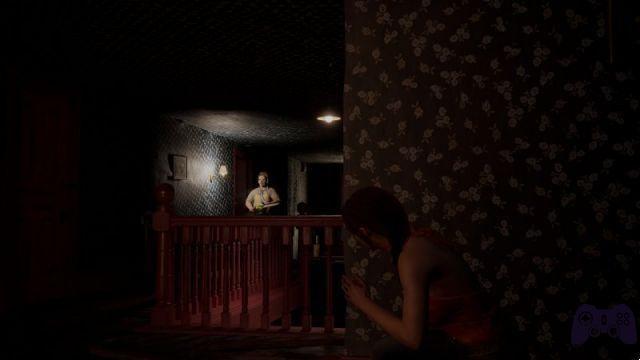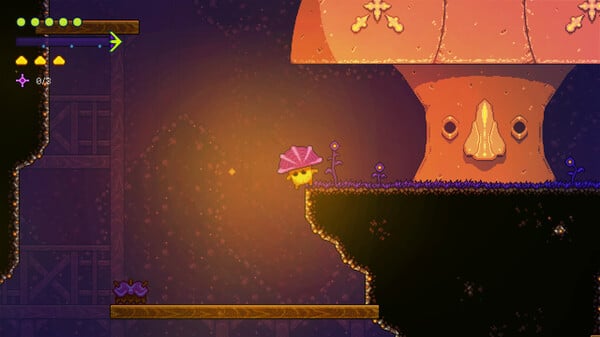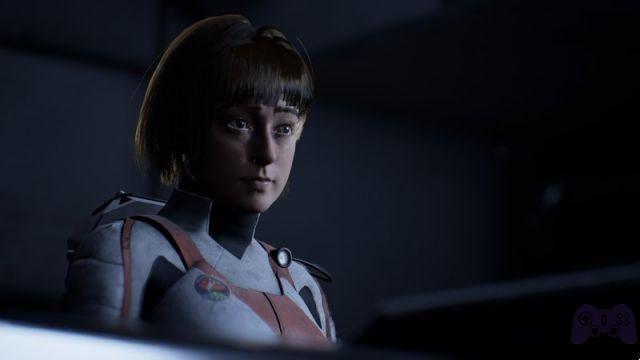Available for years to Apple Arcade subscribers, Wildboy Studios' Nordic adventure has finally reached other platforms. By the way, it can be played on PC, Nintendo Switch and PlayStation 4 (also backwards compatible on PS5). It will be worth the wait? Not really, as you can understand by reading the Atone Review: Heart of the Elder Tree, a game that shines in some aspects, but completely misses the mark in others.
Visual style
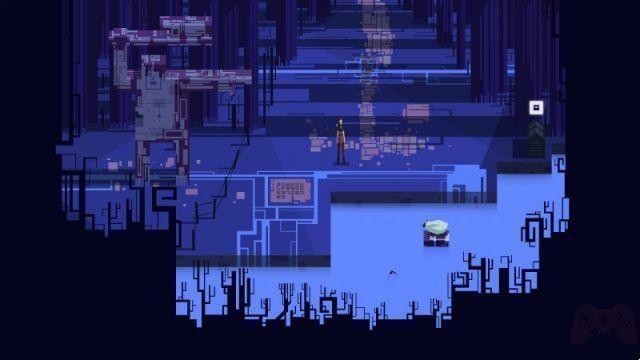
Atone: Heart of the Elder Tree begins by asking the player to tune a musical instrument, following a dialogue between what appear to be old friends. From here one could imagine that the music will be fundamental to the gaming experience, also given the title, unfortunately this is not exactly the case. You can say that it is part of the experience, but at the same time it seems underexploited, almost counterproductive to the fragile balance of the game. But let's try to explain it better. The Wildboy Studios title is a mix of different genres: top-down role-playing game, puzzle adventure, and rhythm game. It narrates Estra's journey to the sacred Ancient Tree in search of the causes of a terrible evil that afflicts the kingdom of men. The girl lost her father and all of her people due to events that are told in the prologue and the weight of her lineage weighs on her. Along the way she will meet friends and enemies, she will have to overcome dark labyrinths full of mysteries, ancient ruins and remote places that humans have not seen for years. all inspired by Norse mythology.
Lo script In itself it is truly fascinating thanks to some well-chosen stylistic choices. Despite being technically very simple, the choice to draw everything using only elementary geometric figures and stylized objects makes simply wandering around the scenarios, divided into submaps (hence no open world), a pleasant affair. It's a shame that it's also the best part of the game, because in the end Atone: Heart of the Elder Tree doesn't really know what it wants to be and makes up for some of its limitations with some really questionable decisions. For example, it entrusts extremely didactic documents found around the maps with the task of providing the player with information about Norse mythology, central to the plot, which ends up breaking the atmosphere rather than improving it, to the point that they seem to have Straight out of an encyclopedia.
Confusion
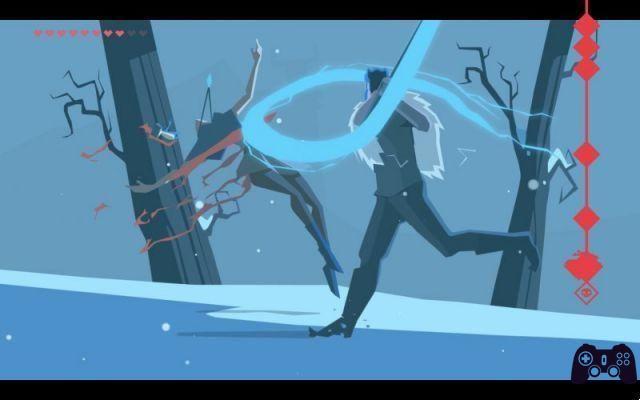
That said, the main problem of Atone, what ends up compromising the entire experience a little, is that the stylistic refinement is not homogeneous, in the sense that although it is visually captivating and original, it fails to do the same with the game mechanics, getting several things wrong. . , while he tries his own approach to it. Let's start with the combats, which all take place against pre-established enemies and at specific moments, so they are strongly narrativized. Battles play out like a rhythm game, meaning the player must press two or four buttons (depending on the difficulty level selected) at the right time, following the rhythm of the music and on-screen prompts, to load the shots. You simply have to try to make as few mistakes as possible if you want to beat your opponent.
The musical pieces are really nice, it must be said, but it is the system itself that does not work as it should, because instead of engaging it ends up being distracting due to the confusion it creates on the screen and because it is a clear change. of the exploratory phase.
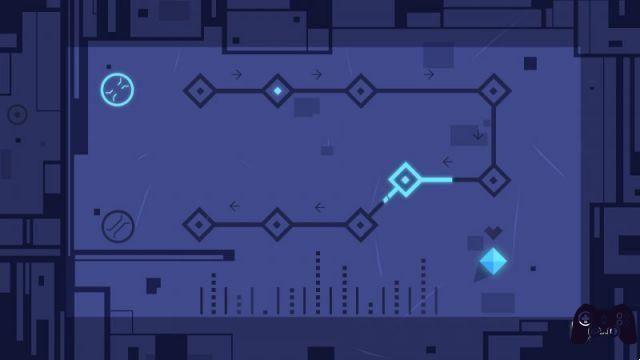
In short, it does not connect very well with other game systems and does not offer particularly interesting responses during execution. It's there, it spectacularizes the confrontations by transforming them into small video clips, but that's all. It is as if it were a minigame in itself, which is activated according to needs and does not add or subtract much from the game as a whole, so much so that by completely eliminating the possibility of losing you do not perceive a big difference in terms of experience. In fact, those who don't particularly like me rhythm games They could find reasons to relieve themselves in this. That said, a game system that, separated from the gameplay, does not involve trauma, is evidently not organic with the rest, nor does it have its own objectives.
Another problem is the tones chosen for the history, who doesn't seem to know exactly what he wants to be. Faced with some dialogues written in an extremely colloquial way and others that imitate more advanced writing, one can rightly wonder if whoever wrote the game had a line to follow or was improvising, trying to lower the tone when possible, but thus creating paradoxical situations.
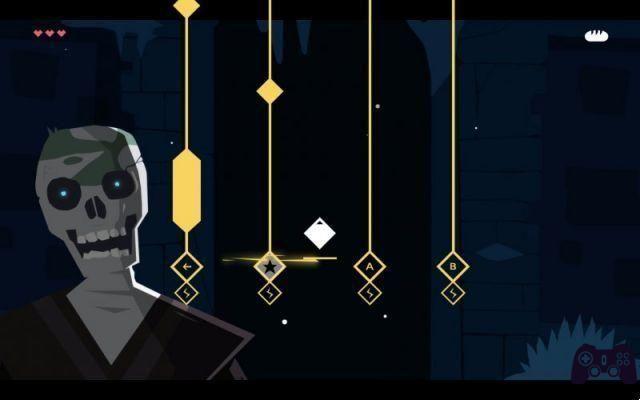
In particular, the relationship with the spirit guide that accompanies Estra is told with the usual clichés of Disney comedy, without ever going too deep and without a quality of writing that stands out, ending up being a great wish but I can't. In reality, this tendency to cancel out good ideas is found throughout the game, between puzzles of varying difficulty, sometimes very easy and other times very difficult, without any gradualness, between an exploration that offers rare surprises to the bravest and between a to make the character grow, whose weight you don't feel much throughout the adventure. The final idea is that of a weak game with some features implemented to compensate. Furthermore, he cannot develop his themes as he would like, and many times he loses them along the way. Overall he's not scary and can be played in his own way, but when talking about him more flaws than strengths come to mind, obviously something must have gone wrong.
Conclusions
Tested version PC with Windows digital delivery Steam, playstation store, Nintendo eShop Price 14,99 € Holygamerz.com 5.5 Readers (2) 8.3 your voteAtone: Heart of the Elder Tree is a semi-successful work, therefore with some notable aspects, particularly the graphic style, and with others that undermine it, such as the musical combat system. It is not that it is denied a complete turn, but in the end it lacks the adequate compactness to become an important experience, also neutralized by a certain lack of direction in the writing, which offers negative and positive peaks absurdly distant from each other.
PRO
- Visually excellent
- Some puzzles are very well done.
AGAINST
- Combat system
- Lacks compactness in game systems.
- fluctuating writing




